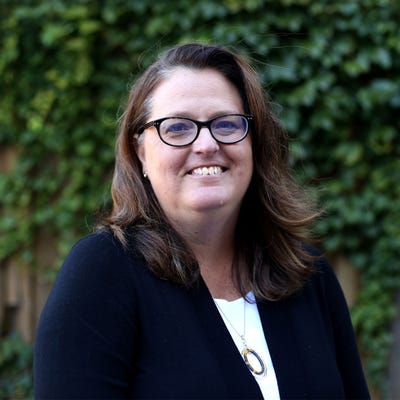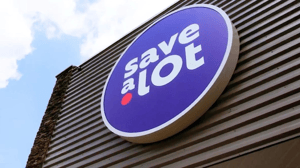Women-Owned Urban Market Enters Windy City's Grocery SpaceWomen-Owned Urban Market Enters Windy City's Grocery Space
Fills longtime food desert on Chicago's West Side all while supporting local. Christina Palivos and Maria Dernis co-own a new independent grocery store that’s now open at 1001 W. Chicago Ave. in Chicago’s River West area, which up until its opening, was regarded as a longtime food desert.
March 23, 2022

In the 2002 film "My Big Fat Greek Wedding," Toula Portokalos, the main character played by Nia Vardalos, quips: “Greek girls are supposed to … feed everyone.” Surely an unrealistic herculean effort, but Christina Palivos and Maria Dernis welcome the challenge. Palivos and Dernis are the co-owners of Urban Market, a new independent grocery store that’s now open at 1001 W. Chicago Ave. in Chicago’s River West area. And yes, they are Greek. And yes, they have the family to prove it. Their husbands, Angelo Palivos and George Dernis, co-own Centro Fresh Market in Chicago’s Belmont-Cragin area.
At 40,000 square feet, Urban Market opened its doors on Dec. 30, 2021. Regarded as a longtime food desert, the area’s closest big grocery store is a Jewel nearly a mile away. “For the longest time, we’ve been hearing how needed a grocery story was to the community and we’re glad to be the ones to fill this void,” said Palivos.
Urban Market features all the luxury, experience-related services high-end shoppers have come to expect in today’s grocery stores in affluent and diverse city centers—including the store’s meat selection, which the grocery store said is “the crown jewel of their operation.” Urban Market said it is one of 11 stores in the country to sell Certified Angus Beef – Prime, which equates to high-end restaurant grade. “We’re offering what you’d get at Gene & Georgetti, Maple & Ash and Gibsons [restaurants] here in Chicago, but out of a grocery store,” said Taylor Smith, head butcher. “If you were to get this steak in a restaurant, you’d be paying $80 for it; whereas with us, you’re paying $30 or $40. So, you’re paying about half of what you’d spend when you’re out to eat.”
Palivos and Dernis spoke with Winsight Grocery Business recently about being a women-owned grocer and the importance of supporting local.
Diane Adam: March is Women’s History Month, and many companies have emphasized their goal of continuing to identify and amplify more women entrepreneurs and brands. What is it like to be a women-owned grocery store when the vast majority of stores like Urban Market are owned by men?
Christina Palivos and Maria Dernis: It is rare to be women-owned in this industry—and it is unique to be trailblazers. It feels good but at times, it can present its own challenges as well.
Consumers have moved to online grocery shopping due to the pandemic, why is it important to have one thing, or something really niche, at your local brick-and-mortar store to help differentiate from other grocery retailers in the area and if so, what is that part of the in-store experience at Urban Market that is unique?
Our ownership is always on-site, and we love to say hello to our customers and garner feedback. That is really unique: the opportunity to socialize the word "healthy" considering the last two years—it has been tough for everyone. Additionally, we have great local partnerships in our cafe, our wine bar and grocery section. You can’t support local if you don’t frequent the store.
Running a grocery business is tough. Add a family business and that brings another level of positive or negative dynamics. As a family of grocers at Urban Market, what have you learned to be more agile and creative about building and promoting a business when the pandemic changed so many otherwise predictable factors?
You always start with a business plan, and you need to be able to pivot with the market change and the new direction of e-commerce.
Balancing store needs amid labor shortages in the grocery industry has been a growing challenge as some retailers are offering sign-on bonuses. Tell us about Urban Market’s strategy to combat the increasing labor shortages in grocery?
We search for great team members and are higher than the industry average.
A new report by Mazars, an audit, tax, and advisory firm in the U.S., found that 54% of food and beverage industry executives said their top concern was shipping and container costs and other unexpected fees when it comes to navigating the current supply chain disruption—all while trying to push forward sales and growth strategies. As a small, independent grocery store, how have you been able to navigate these challenges as you work with local suppliers and how has that relationship helped the overall local economy?
We have always supported local businesses in all our endeavors. We have had to outsource due to the shortages. Cost is significantly increased on certain products almost triple in the last few months. Our team had to mark up the prices to compensate at the store. We have helped implement money back into the economy by ensuring that we work with local vendors and those that cover a variety of different products.
About the Author
You May Also Like






